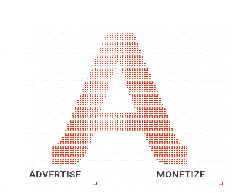Day 14: Managing Tax Debt and Dealing with the IRS
Tax debt can be overwhelming, but understanding how to manage it and knowing how to communicate with the IRS can make a significant difference. Today, we’ll discuss strategies for managing tax debt and tips for effectively dealing with the IRS.
-
Understand Your Tax Debt
Importance: Knowing the details of your tax debt, including the amount owed and any accrued interest or penalties, is crucial for developing a repayment plan.
Tip: Review your IRS notice or log in to your IRS account to get a detailed breakdown of your tax debt.
-
Pay as Much as You Can
Importance: Paying as much of your tax debt as possible can reduce interest and penalties. Even partial payments can help mitigate the financial burden.
Tip: If you can’t pay the full amount, make a partial payment and communicate with the IRS about your situation.
-
Set Up a Payment Plan
Importance: The IRS offers payment plans that allow you to pay your tax debt over time. Setting up a plan can help you manage your finances more effectively and avoid further penalties.
Tip: Apply for an installment agreement online or by submitting Form 9465. Be sure to understand the terms and keep up with payments.
-
Consider an Offer in Compromise
Importance: An Offer in Compromise allows you to settle your tax debt for less than the full amount if you meet certain criteria. This option is available for taxpayers who can’t pay their full tax liability.
Tip: Use the IRS Offer in Compromise Pre-Qualifier tool to see if you qualify and submit Form 656 with the required documentation.
-
Request a Penalty Abatement
Importance: The IRS may remove or reduce penalties if you can demonstrate reasonable cause, such as a natural disaster or serious illness.
Tip: Write a letter to the IRS explaining your situation and provide any supporting documentation. You can also request abatement through your tax professional.
-
Stay in Communication with the IRS
Importance: Keeping the lines of communication open with the IRS can help resolve issues more effectively. Ignoring IRS notices can lead to further penalties and enforcement actions.
Tip: Respond promptly to any IRS notices and provide the requested information. If you’re unsure how to proceed, seek assistance from a tax professional.
-
Protect Your Assets
Importance: The IRS has the authority to seize assets to satisfy tax debt. Understanding your rights and taking steps to protect your assets is crucial.
Tip: Know your rights under the IRS Collection Due Process. If you’re facing asset seizure, consider consulting a tax attorney or a tax resolution specialist.
Why This Matters
Managing tax debt and dealing with the IRS can be challenging, but understanding your options and taking proactive steps can help you resolve your tax issues and avoid further financial stress. Implementing these strategies ensures you’re on the path to financial stability and compliance.
Stay Engaged
Feel free to ask questions, leave comments, and share your thoughts. Tomorrow, we’ll dive into the benefits of hiring a tax professional and how to choose the right one for your needs.
Remote Accounting Services
At MTF & Co., in association with One Web One Hub, we offer comprehensive remote accounting and bookkeeping services to individuals and businesses alike. Our team of experienced professionals is dedicated to providing accurate and reliable financial management, no matter where you are. With our remote capabilities, you can access our expert services from the comfort of your home or office, ensuring your financial needs are met with precision and care. Contact us for a quote with your business requirements at mtfco@onewebonehub.com.
Stay tuned and get ready to become a tax filing pro with MTF & Co. and One Web One Hub!
Ready to dive deeper into the world of taxes? See you tomorrow!












